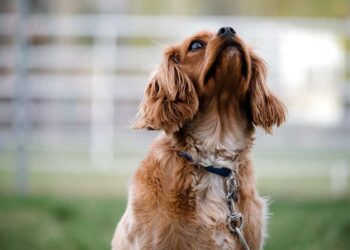As dog lovers, we often hear the saying, “There’s no such thing as a bad dog, only bad owners.” At first glance, this phrase seems to promote a positive view of our canine companions. However, upon closer inspection, it raises questions about the nature of dogs and our role as their guardians. In this article, we’ll explore why it might be time to turn this saying on its head. Instead of viewing dogs as inherently good, we’ll delve into the reality that all dogs possess natural instincts that can lead to undesirable behaviors unless guided by knowledgeable and dedicated owners.
Reexamining the “Good Dog” Myth
The Origin of the Saying
- Common Understanding: The saying implies that dogs are pure-hearted creatures, and any bad behavior stems from poor training or neglect.
- Misleading for New Owners: This perspective can lead new dog owners to overlook the necessary work involved in raising a well-behaved pet.
Understanding Dog Nature
- Canine Instincts: Dogs are descendants of wolves, and many of their instincts are rooted in survival, hunting, and social hierarchy.
- Behavioral Tendencies: Understanding these instincts is crucial for effective training and ownership.
The Necessity of Training
Potty Training: A Fundamental Requirement
- The Importance of Potty Training: Without proper training, dogs will relieve themselves indoors, leading to unsanitary living conditions.
- Natural Den Instincts: Dogs have a limited understanding of den behavior and rely heavily on their owners for guidance.
Obedience Training and Discipline
- Common Misbehaviors:
- Stealing Food: Dogs are opportunistic eaters and will take food if not taught otherwise.
- Excessive Barking: Many dogs bark for attention or to express their needs, which can become disruptive.
- Destructive Habits: Without proper outlets and training, dogs may chew furniture or engage in other destructive behaviors.
- Examples of Training Needs:
- Basic Commands: Sit, stay, and come are foundational commands that help manage behavior.
- Consistency is Key: Reinforcing commands consistently is essential for effective training.
The Predatory Nature of Dogs
Dogs as Natural Predators
- Instinctual Behaviors: Many breeds have a strong prey drive, leading them to chase smaller animals.
- Understanding Aggression: It’s important to recognize that aggression can stem from instinct rather than malice.
The Role of Environment and Socialization
- Importance of Socialization: Early and ongoing socialization can help reduce aggressive tendencies and promote good behavior.
- Tips for Creating a Balanced Environment:
- Introduce New Experiences Gradually: Expose your dog to different people, pets, and environments in a controlled manner.
- Positive Reinforcement: Encourage good behavior in social settings with treats and praise.
The Human Element in Dog Behavior
Human Influence on Dog Behavior
- Positive Reinforcement: Dogs thrive on rewards for good behavior, which helps build a trusting relationship with their owners.
- Learning to Please: While dogs may seem eager to please, this behavior often comes from learned experiences rather than inherent traits.
The Responsibility of Ownership
- What Constitutes Responsible Pet Ownership:
- Time Commitment: Training and socialization require significant time and effort.
- Education: Understanding dog behavior and training techniques is essential for effective ownership.
Addressing Counterarguments
The Nature vs. Nurture Debate
- Behavior Complexity: Just as humans are shaped by their upbringing, so too are dogs influenced by their surroundings and owners.
- Recognizing Nuance: Not all dogs will respond the same way to training; individual temperament plays a role.
Subjectivity of “Good” and “Bad”
- Perception Variations: What one person views as bad behavior may be seen as normal by another.
- Reflecting on Experiences: Encourage readers to consider their own experiences and how they define “good” and “bad” in the context of their dogs.

Conclusion
In conclusion, while the phrase “There’s no such thing as a bad dog, only bad owners” carries a positive message, it oversimplifies the complex nature of canine behavior. Dogs are not inherently good; they are creatures driven by instincts that require our guidance to flourish. As pet owners, we must recognize our critical role in shaping our dogs’ behavior through training, socialization, and positive reinforcement.
By understanding that all dogs can exhibit “bad” behaviors without proper guidance, we can embrace the responsibility that comes with dog ownership. Let’s commit to being the best owners we can be, ensuring our dogs become the well-behaved companions we desire. Together, we can foster a deeper bond with our pets, ultimately enriching both our lives and theirs.


















